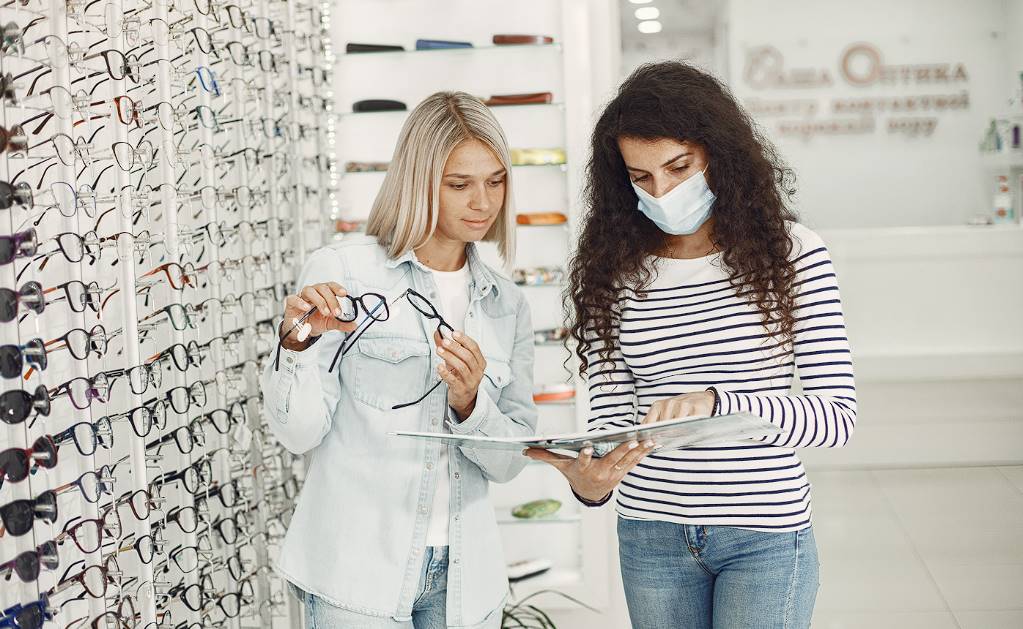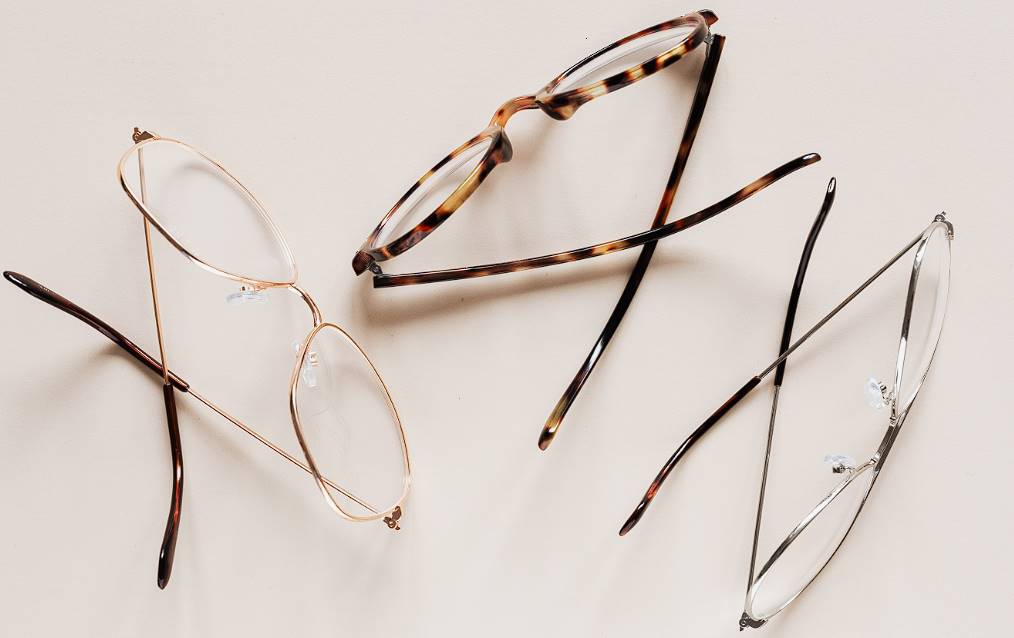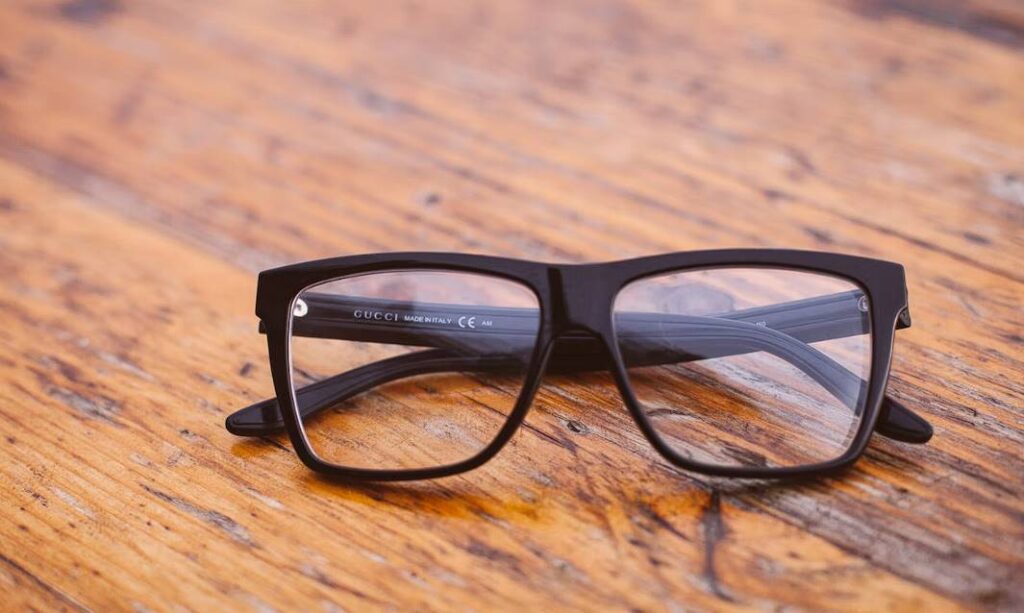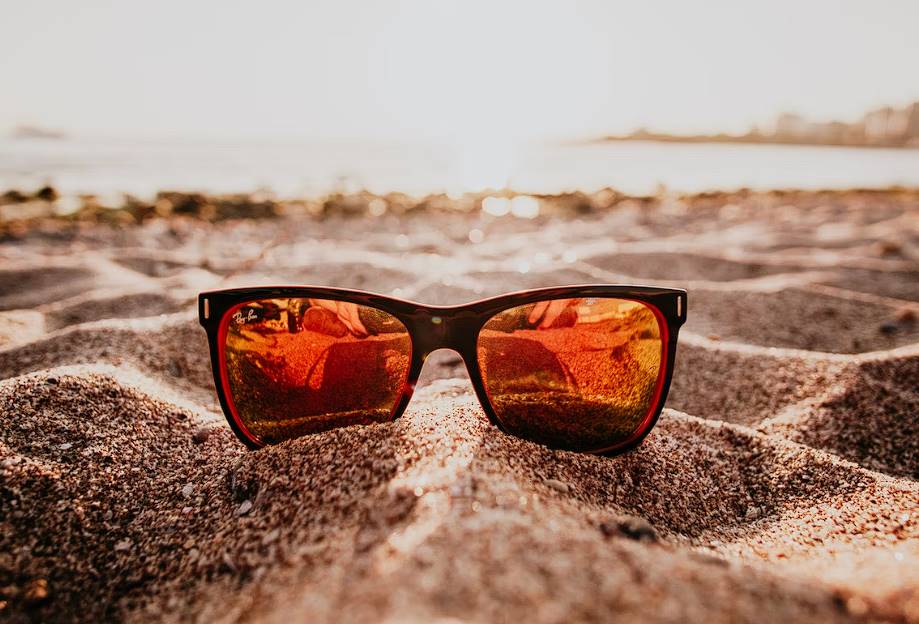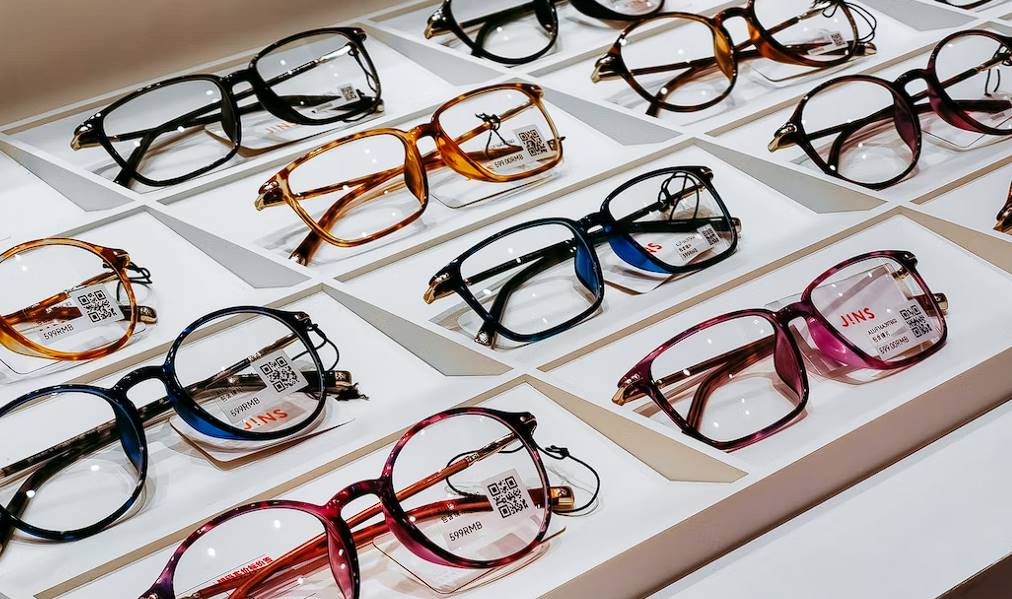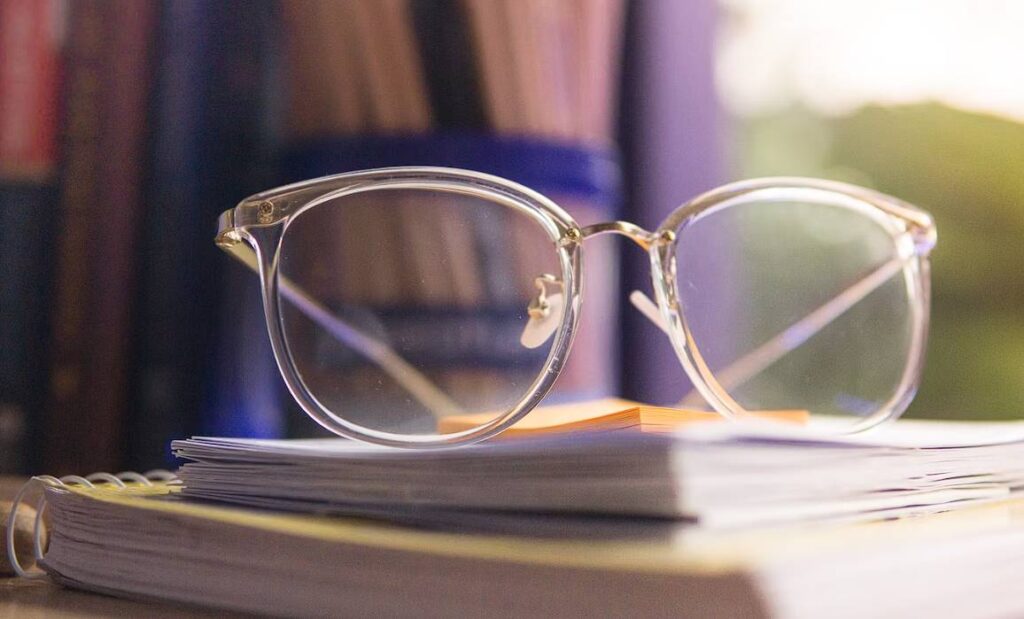You may have a refractive defect requiring glasses if you notice a change in your ability to read, use a computer, or see at a distance. In addition, you might forget the last time you had an eye check, experience flashes of light, or suffer headaches. It could be time for a visit to the eye doctor.
As your eyes age, you may find that you require reading glasses that you can buy without a prescription. It's possible that you have a chronic disease that requires regular checkups and a switch in medications. If you've noticed sun damage to your eyes, it's possible that your optometrist will suggest a certain pair of sunglasses to wear during the day.
It's important to consult an ophthalmologist before deciding whether or not you need glasses. You shouldn't immediately go out and buy a new pair of glasses from the store if you start having vision problems. It's still crucial to figure out why your eyes are changing, even if you find a pair that helps.
What Kinds of Glasses Are Used for What Activities?
- Standard Eyeglasses: One of the earliest devices for improving eyesight, glasses consist of a pair of lenses made of plastic or glass that are separated from the eye by a frame. of order to correct refractive defects including nearsightedness, farsightedness, and astigmatism, the lenses of the glasses come in a variety of shapes and thicknesses. Cataract and glaucoma sufferers might also benefit from corrective eyewear in order to see better.Close-up of a businessman working at his desk, with his eyes straining to focus on the screen of his laptop.
- Although both lenses in a pair of single-vision glasses are the same shape, it is possible that the prescription in one eye is different from the other. Multifocal lenses, of which bifocals and trifocals are the most well-known, are designed to address both near and farsightedness.
- The prescription with progressive lenses gradually shifts, unlike in traditional bifocals or trifocals. As a substitute, the lens is uninterrupted from its optical centre down to its bottom, where the farsightedness correction prescription is located.
- Reading glasses: These eyeglasses are designed to treat presbyopia, a form of farsightedness that typically affects people over the age of 40. People who already use glasses may require bifocals due to presbyopia. Even people who have perfect vision require glasses for close work like reading.
- Reading glasses may be available without a prescription at your local drugstore. If your eyesight has changed by more than +3.00, however, you will need corrective lenses for reading.
- UV sunglasses: Without proper eye protection, prolonged exposure to the sun can cause permanent damage to one's eyesight. Wearing sunglasses that do not provide adequate protection from UV rays is still a risk factor for eye injury.
- Consult your eye doctor for advice on finding sunglasses with UV protection of at least 100 percent. Keep in mind that these sunglasses are only effective against UV light emanating from the sun. Eye protection with UV filters is different for arc welding, tanning beds, and snow.
- Transition lenses: You might not want to wear clip-on sunglasses over your regular eyewear or remember to bring your prescription sunglasses everywhere you go. Instead, many people use transition lenses, which automatically darken under direct sunlight. These lenses are useful because they block harmful UV rays, but they can be inconvenient because they may darken when worn indoors.
How Frequently Should I Visit My Optometrist?
You need glasses or new glasses if your eyesight suddenly worsens. Refractive faults including nearsightedness, farsightedness, and astigmatism, the most common causes of these alterations, can be diagnosed by an ophthalmologist, who will then prescribe corrective lenses.
How frequently should one see a physician? Even if there have been no changes, there are age-based guidelines for how often you should have your eyes examined. You should also visit your optometrist right away if you notice any significant change in your vision. An optometrist can alter your prescription and refer you to a specialist if necessary to determine the underlying cause of your vision problems.
Your eyes will be tested at varying intervals depending on your age.
- Babies should have their eyes examined beginning at 6 months of age, and then every 6 months until they are 2 years old.
- The youngster should have at least one eye checkup between the ages of 3 and 5.
- A yearly eye exam, with the first one occuring just before the beginning of the first grade, is recommended between the ages of 6 and 18.
- Adults between the ages of 18 and 39 should get their eyes examined at least once every two years, and maybe more frequently if they experience any changes in their vision.
- Eye exams are recommended at least once every two years for persons aged 40 to 64.
- Annual eye exams are recommended for everyone over the age of 65.
Naturally, you can purchase new glasses if you prefer a different style, if your current pair is damaged, or if it has gone out of style. You can get as many pairs of glasses as you like whenever you like, so long as your prescription is up to date.
Why Are New Glasses So Important?
When we finally settle on the ideal pair of glasses, many of us refuse to switch lenses until absolutely necessary. However, if it's been more than two years since you last had your eyes checked, your glasses may no longer be properly correcting your vision.
It's not always evident when it's time to update your glasses prescription, unlike a pair of jeans that no longer fits a growing youngster after a summer. If you don't get your eyes checked once a year, you might not realise how much your eyesight has deteriorated until it's too late.
How often must eyeglasses be replaced? Optometrists advise having regular checkups at the eye doctor every two years to maintain accurate prescriptions. But how can you tell if your prescription has to be updated before your yearly check up? Blurred vision is a telltale indication. Some of the indicators that you need new glasses are more subtle than others, so be on the lookout for the following:
You Are Squinting
When you close your eyes slightly, the world suddenly becomes visible. Squinting helps you see better because it allows more light into your eyes at once. Even while it works in a pinch, doing that with your glasses on is not a good idea.
You Have Headaches
There is strain on the eye muscles because of all the extra effort your eyes and brain are doing to compensate for the old prescription. Causes discomfort to the head and eyes. It could be time to see an eye doctor if you've been experiencing a disproportionate number of headaches.
You Haven’t Replaced Your Glasses in Years
Since eye health is tied to age and overall health, the American Optometric Association (AOA) suggests scheduling a full eye exam every two years. There are warning indicators of heart disease and diabetes that your eye doctor can spot.
Your Vision Is Dual
When this happens, it's because your eyes aren't coordinating their vision properly and you're seeing two separate images of the same item.
Your Glasses Are Scratched or Damaged
Lenses that have been scratched might distort your vision, and frames that have been bent may not rest properly on your face. Both of these things are bad for your eyesight.
Even though your present glasses are in fine shape and allow you to see clearly, it may be prudent to upgrade from time to time. When you want to change frames, you might do so if:
Fashion-forward In favour of the latest and greatest, folks may put away their eyeglasses from last year. There's no shame in following the latest fashions.
Photochromic glasses darken under ultraviolet light, while blue light lenses alleviate computer-related eye strain. These are just two examples of advanced lens technology that could benefit your search for new eyewear.
Side Effects of Old Glasses
It's a typical mistake to keep using outdated eyeglasses because you think they'll improve your vision. Put your eyes at risk by continuing to use outdated prescription glasses. If you've noticed a little decline in your eyesight or have developed double vision, it may be time to obtain a new pair of glasses.
When your eyesight isn't as sharp as it once was, you might want to look into getting new glasses. If you have the right prescription, you shouldn't have trouble seeing clearly or squinting to focus on what's in front of you.
If you feel relieved or calmer without your glasses on, it's time to obtain a new pair. When that happens, it's time for new eyewear. If you want to avoid headaches, neck pain, and strained eyes, it's time to get a new pair of glasses.
If you've gone more than a year without seeing an eye doctor and you're experiencing any of these symptoms, it's time to get a new prescription.
What Optometrists Suggest
Adults between the ages of 19 and 40, regardless of whether they need corrective lenses, have been found by the American Optometric Association to have rather stable vision. However, this fact does not rule out the need for improved eyewear. Vision declines with ageing. That's why it's advised that grownups get an eye exam annually, if not biannually. Your optometrist can tell if your eyesight has changed even slightly and if you need new glasses at your annual checkup. If your eyesight has changed, your doctor may recommend new, stronger glasses. On the other hand, our optometrist may inform us that your eye exam findings indicate no subtle changes to your eyesight. However, you should consult your optometrist to find out if new glasses are necessary.
Lenses for corrective eyewear are evolving alongside technological progress. It's possible we don't have to buy new eyewear, but it might be in our best interest to do so for the sake of our vision. Thanks to recent technological advancements, you can now have brand new eyewear that is designed specifically for you. The best lenses for your eyesight are those that are tailored to your personal preferences and line of work. You can specify lenses for your new glasses, such as progressive lenses, that perform many functions for your eyes. For people who require multiple strengths in their eyewear, progressive lenses eliminate the hassle of frequently switching between pairs.
Another reason to get a new pair of glasses is that modern technology makes it possible to tailor your frames specifically to your line of work. For optimal vision and eye health, it's essential to have your glasses tailored to your specific needs, such as if you spend most of your time staring at a computer screen. Reading glasses with extended focal lengths have two lenses, one for near work and one for far. Even if you don't have any trouble seeing without them, you should get a new pair of glasses so you can take advantage of the improvements in eyewear technology.
Conclusion
The most critical information is that you should check with an eye doctor before choosing if you require corrective lenses. To treat refractive problems such nearsightedness, farsightedness, and astigmatism, a pair of lenses housed in a frame is typically used. People with glaucoma and cataracts may potentially gain clarity of vision through using prescription eyeglasses. One or both eyes of a wearer of single-vision glasses may require a different prescription. In order to correct for both near and farsightedness, multifocal lenses like bifocals and trifocals are available.
Regular eye exams are recommended for adults every two years, or more often if they notice any changes in their vision. People between the ages of 40 and 64 should get an eye exam every two years, while those beyond the age of 65 should get one every year. As long as the prescription is current, they can get new glasses whenever they choose. Optometrists advise having biannual examinations to ensure that prescriptions are still accurate. Signs that it's time for new eyewear include having trouble seeing clearly, squinting excessively, experiencing frequent headaches, having double vision, having lenses that are scratched or damaged, or having frames that have been bent.
If you want to stay on trend, it's also vital to upgrade periodically. Blue light lenses reduce computer-related eye strain, while photochromic glasses darken in sunlight. If your eyesight is deteriorating or you've got double vision, it's time to replace your old glasses. If you want to know if your eyesight has altered, optometrists recommend having an exam at least once a year and preferably twice a year. If your eyesight hasn't changed significantly, but you're wondering if new glasses are essential, schedule an appointment with your optometrist.
New glasses, such those with progressive lenses, can be adapted to the wearer's needs and profession. If you spend most of your time in front of a computer screen, for example, you can get a pair of glasses designed just for your eyes. Get a new set of glasses to take advantage of the advances in eyewear technology, even if you don't have any trouble seeing without them.
Content Summary
- You may have a refractive defect requiring glasses if you notice a change in your ability to read, use a computer, or see at a distance.
- It could be time for a visit to the eye doctor.
- As your eyes age, you may find that you require reading glasses that you can buy without a prescription.
- If you've noticed sun damage to your eyes, it's possible that your optometrist will suggest a certain pair of sunglasses to wear during the day.
- It's important to consult an ophthalmologist before deciding whether or not you need glasses.
- You shouldn't immediately go out and buy a new pair of glasses from the store if you start having vision problems.
- It's still crucial to figure out why your eyes are changing, even if you find a pair that helps.
- Although both lenses in a pair of single-vision glasses are the same shape, it is possible that the prescription in one eye is different from the other.
- The prescription with progressive lenses gradually shifts, unlike in traditional bifocals or trifocals.
- People who already use glasses may require bifocals due to presbyopia.
- Reading glasses may be available without a prescription at your local drugstore.
- If your eyesight has changed by more than +3.00, however, you will need corrective lenses for reading.
- Consult your eye doctor for advice on finding sunglasses with UV protection of at least 100 percent.
- You need glasses or new glasses if your eyesight suddenly worsens.
- Refractive faults including nearsightedness, farsightedness, and astigmatism, the most common causes of these alterations, can be diagnosed by an ophthalmologist, who will then prescribe corrective lenses.
- Even if there have been no changes, there are age-based guidelines for how often you should have your eyes examined.
- You should also visit your optometrist right away if you notice any significant change in your vision.
- An optometrist can alter your prescription and refer you to a specialist if necessary to determine the underlying cause of your vision problems.
- Your eyes will be tested at varying intervals depending on your age.
- You can get as many pairs of glasses as you like whenever you like, so long as your prescription is up to date.
- However, if it's been more than two years since you last had your eyes checked, your glasses may no longer be properly correcting your vision.
- If you don't get your eyes checked once a year, you might not realise how much your eyesight has deteriorated until it's too late.
- How often must eyeglasses be replaced?
- Optometrists advise having regular checkups at the eye doctor every two years to maintain accurate prescriptions.
- But how can you tell if your prescription has to be updated before your yearly check up?
- Blurred vision is a telltale indication.
- When you close your eyes slightly, the world suddenly becomes visible.
- Even while it works in a pinch, doing that with your glasses on is not a good idea.
- It could be time to see an eye doctor if you've been experiencing a disproportionate number of headaches.
- There are warning indicators of heart disease and diabetes that your eye doctor can spot.
- Both of these things are bad for your eyesight.
- Even though your present glasses are in fine shape and allow you to see clearly, it may be prudent to upgrade from time to time.
- Photochromic glasses darken under ultraviolet light, while blue light lenses alleviate computer-related eye strain.
- These are just two examples of advanced lens technology that could benefit your search for new eyewear.
- It's a typical mistake to keep using outdated eyeglasses because you think they'll improve your vision.
- Put your eyes at risk by continuing to use outdated prescription glasses.
- If you've noticed a little decline in your eyesight or have developed double vision, it may be time to obtain a new pair of glasses.
- If you want to avoid headaches, neck pain, and strained eyes, it's time to get a new pair of glasses.
- Vision declines with ageing.
- That's why it's advised that grownups get an eye exam annually, if not biannually.
- Your optometrist can tell if your eyesight has changed even slightly and if you need new glasses at your annual checkup.
- If your eyesight has changed, your doctor may recommend new, stronger glasses.
- However, you should consult your optometrist to find out if new glasses are necessary.
- Lenses for corrective eyewear are evolving alongside technological progress.
- Thanks to recent technological advancements, you can now have brand new eyewear that is designed specifically for you.
- The best lenses for your eyesight are those that are tailored to your personal preferences and line of work.
- You can specify lenses for your new glasses, such as progressive lenses, that perform many functions for your eyes.
- Another reason to get a new pair of glasses is that modern technology makes it possible to tailor your frames specifically to your line of work.
- Even if you don't have any trouble seeing without them, you should get a new pair of glasses so you can take advantage of the improvements in eyewear technology.
Frequently Asked Questions
Cleaning your glasses daily is not mandatory, but it is highly recommended to prevent eye strain. Regular cleaning helps maintain optimal vision by removing dirt, oil, and smudges that accumulate on the lenses. By keeping your glasses clean, you ensure that your eyes can see through them clearly without the need for additional effort, reducing the risk of eye strain.
Keeping your glasses clean offers several additional benefits beyond preventing eye strain. Clean glasses provide clearer vision, enhancing your overall visual experience. Moreover, clean glasses reduce the risk of smudging your lenses or obstructing your view due to dirt and fingerprints. By maintaining clean glasses, you also extend the lifespan of the lens coatings and prevent potential damage that could compromise their functionality.
Yes, dirty glasses can worsen existing eye conditions. Individuals with conditions like astigmatism or nearsightedness rely on glasses to correct their vision. When these glasses are dirty, the visual correction they provide becomes compromised. The dirt or smudges on the lenses can amplify the existing vision problems, making it harder to see clearly and potentially exacerbating the symptoms associated with the condition.
Yes, dirty glasses can contribute to headaches and eye pain. When you wear glasses with smudges or dirt, your eyes may have to strain to compensate for the reduced clarity. This constant effort can lead to eye muscle fatigue and tension, which can trigger headaches. Additionally, the strain on your eyes can cause discomfort and pain in and around the eye area.
When cleaning glasses, it's best to use a mild soap specifically formulated for eyewear or a lens cleaning solution. Avoid using harsh chemicals, ammonia-based cleaners, or abrasive materials as they can damage the lens coatings. To clean your glasses, gently rub the lenses with your fingertips or a soft, lint-free cloth in a circular motion. Rinse them thoroughly and pat dry with a clean microfiber cloth to avoid scratching the lenses.

